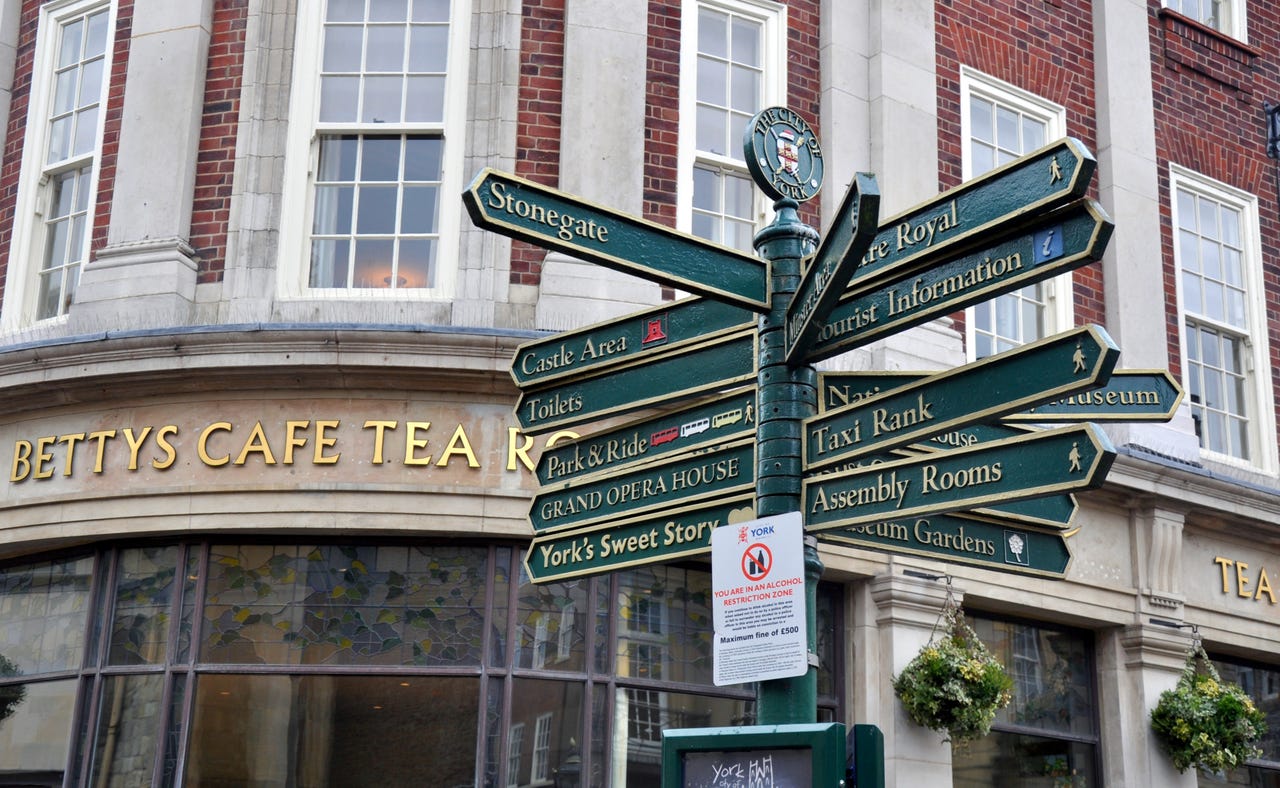UK government seeks city to showcase 5G connectivity


York is the sort of city that could benefit from a 5G network thanks to its high concentration of tourist attactions.
The British government plans to create a "5G city" as a testbed for the future rollout of 5G phone networks across the UK. But which city? That's up for grabs. The Department for Digital, Culture, Media and Sport (DCMS) wants to receive "expressions of interest" from cities that would like to be "the public sector partner" in the project. The deadline is June 5.
Industry participation will involve the new UK5G Innovation Network, which was launched on March 26.
Some money will be available. The DCMS says that "funding for the project will come from the £200 million assigned so far to develop 5G technologies as part of over £1bn investment in next-generation digital infrastructure." Note: that doesn't say the chosen city will actually get £200 million. That's just how much is held in that particular purse. The largest grant made so far was only £5 million.
One potential drawback is that the DCMS would prefer to hear from "large cities below 500,000 population but with very strong, clear digital leadership and vision". That eliminates London, Birmingham, Manchester, Leeds, Sheffield and other go-ahead cities. However, potential candidates could include York, Brighton, Bristol, Bath and Norwich, as well as both Oxford and Cambridge.
The bid will need to include projects that show how 5G "can make urban communities inherently safer, greener, more efficient and more attractive places to live". The DCMS provides a few examples, such as real-time video consultation and remote treatment to improve healthcare, sensor-based traffic management to improve travel, and "revolutionising the way visitors experience tourist venues through the use of Augmented and Virtual Reality technologies".
Margot James, Minister for Digital, said in a statement: "This is a huge opportunity for an urban area to become the flagship of our ambitious programme to make Britain fit for the future and a world leader in 5G. Trialling 5G at scale across an entire city is a chance to prove the economic benefits predicted from this new technology, test different methods of deployment and boost the connectivity of ordinary people working and living there."
The DCMS plans to follow the urban project with a Rural Connected Communities Project.
On March 9, the DCMS announced backing for another six projects worth £25 million under its 5G Testbeds and Trials Programme, which started last year. The winners were 5G RuralFirst, led by Cisco and the University of Strathclyde, 5G Smart Tourism from the West of England Combined Authority (which includes Bath and Bristol), the Worcestershire 5G Consortium, and the 5G Rural Integrated Testbed (5GRIT) led by Quickline Communications.
Liverpool will run a health-oriented 5G testbed led by Sensor City with the NHS, while Airspan Communications will lead AutoAir, a 5G testbed for connected and autonomous vehicles.